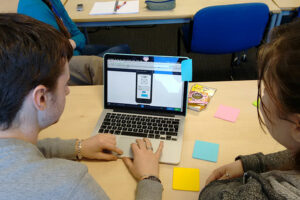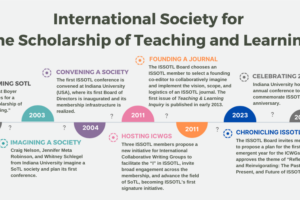A Report from the Publications Advisory Committee, August 2014
- Posted by ISSOTL Admin
- Categories News
- Date August 19, 2014
A Report from the Publications Advisory Committee, August 2014
* This report is also available in .pdf format: here.
In March of this year, the then-newly approved Publications Advisory Committee (previously operating as an ad hoc committee) delivered to the ISSOTL Board, at the Board’s request, its first report on the future of Teaching & Learning Inquiry (TLI). We’re writing now to inform our fellow ISSOTL members about a key recommendation in that report—that TLI move from its current paper and online subscription-based model to a online-only, Open Access (OA) model. This is not something that would or could happen right away. We are looking down the road, thinking longer term, and recognizing the need for significant member input, deliberation, and planning.
First, however, some background: The Publications Advisory Committee is charged with stewardship of TLI. While TLI editors Nancy Chick and Gary Poole and their very able editorial board manage all matters related to the substantive direction of the journal, the new committee concerns itself with the journal’s financial health and sustainability, and how it might adapt to take advantage of emerging opportunities in the world of scholarly publication. (Nancy and Gary are ex officio members of the committee, whose full membership is listed at the end of this report.)
The committee sees a number of advantages to TLI in moving to an online-only, Open Access form of publication:
- Through OA, the journal’s reach can be significantly expanded. Some studies indicate that OA articles are cited more often, indicating wider impact as well as wider reach.We learned of one journal that went from subscription-based to Open Access and saw its downloads increase by 500%.
- In particular, the international constituency of ISSOTL would be better served by the wider reach that Open Access provides.
- Many funders and institutions—and this is true internationally–are now requiring OA dissemination.
- The online environment allows greater flexibility in the way we can disseminate our scholarship. The online-only format opens up new possibilities for works that include elements of interactivity and animation as well as much greater visual content. For examples of the kinds of works an online environment can support, see The Spatial History Project and the Journal of Visualized Experiments(http://www.jove.com/).
- An online-only publication also allows the inclusion of supplementary data files and other kinds of live links at little or no extra cost. Working online allows easier linking to raw research data (where IRBs permit) in ways common in the sciences that would be highly advantageous to SOTL.
- Eliminating the hard copy of the journal will reduce the amount of paper consumed and the carbon footprint of dissemination, which may be of net benefit to the environment.
- Costs for OA publishing are wide ranging (depending on what platform is employed), and the most important arguments for moving to OA are not financial—but it appears that some OA options may bring welcome savings to ISSOTL.
The committee does not mean to suggest that Open Access publishing presents no challenges. However, we believe it is congruent with the SOTL culture of sharing and could enhance both the impact and the quality of the journal.
Many ISSOTL members have experience with Open Access journals. The ISSOTL Board is eager to hear from you, so please share your thoughts and questions here. (Note the Frequently Asked Questions that accompany this report as well.) There will also be two opportunities for discussion at the upcoming conference in Quebec City—over lunch and at the end of the afternoon on Friday October 24. Please check the program for details.
Meanwhile, the Committee is pleased to announce that the ISSOTL Board has been able to implement one of our more immediate recommendations: TLI authors will soon (we hope by the next issue) be able to create a finite number of free downloads of their article, a practice now allowed by some other publishers and one (like Open Access) that serves to make the work more widely available through social media and other channels.
Respectfully submitted,
The Publications Advisory Committee:
Sean Brawley (Australia)
Mick Healey (UK)
Pat Hutchings (US), chair
Margy MacMillan (Canada)
Rebecca Nowacek (US)
Kathy Takayama (US)
TLI editors Nancy Chick and Gary Poole, ex officio
Previous post
Examining Teaching & Learning through the Lenses of the Arts & Humanities
You may also like

2024 Emerging Scholars Fund

Online Webinar | May 23, 2024


